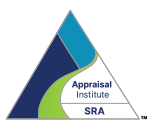Tips for Consumers:
What Consumers Need to Know About Real Estate Appraisals
Appraisals are particularly valuable because they are an objective and unbiased source of real estate information. Unlike some other real estate professionals, the appraiser performs a professional service for a fee rather than for a commission contingent on the value conclusion, the approval of a loan or the eventual sale of the property. To help consumers understand the role of appraisals in the lending process, the Appraisal Institute offers these helpful tips.
Residential appraisals are an essential component of the real estate industry. They provide an unbiased and professional assessment of the value of a residential property, typically conducted by a licensed appraiser. Here are a few perspectives on residential appraisals:
|
How to Prepare for an Appraiser's Visit:
When dealing with appraisals, the Appraisal Institute recommends several key practices to ensure a successful and accurate process: 1. Hire a Qualified Appraiser: To avoid potential appraisal issues, it's crucial to select a highly qualified and competent appraiser endorsed by the lender. Emphasizes the importance of appraisers with specific market experience and appropriate designations like SRA, which signifies a higher standard of education and experience. 2. Prepare Relevant Property Information: Contrary to misconceptions about appraiser independence, appraisers welcome information that contributes to a reliable valuation. Homeowners can accompany appraisers during property inspections and provide relevant details. 3. Inform Appraiser of Enhancements: If considering property improvements before selling, appraisers can advise on projects that offer the best return on investment. Basic upgrades like neutral paint and new fixtures are recommended, followed by renovations that align with community norms, such as kitchen or bathroom updates and curb appeal enhancements. 4. Review the Appraisal Report: Homeowners should review their appraisal reports for factual accuracy, including the property's specifications. Consumers are entitled to a free copy of all appraisal-related data used in the transaction, available before the loan's closing. By following these practices, homeowners can navigate the appraisal process more effectively, leading to reliable and credible property valuations. For more detailed information, consumers can visit the Appraisal Institute's website. |


Mark Raney Appraisals LLC
Residential AppraiserAlbuquerque-Rio Rancho Appraiser, Education & Experience at Your Service.
12231 Academy Rd NE #301-269
Albuquerque,
NM 87111
Phone: 505-856-9894 Fax: 505-856-9898www.appraisalsalbuquerque.com

